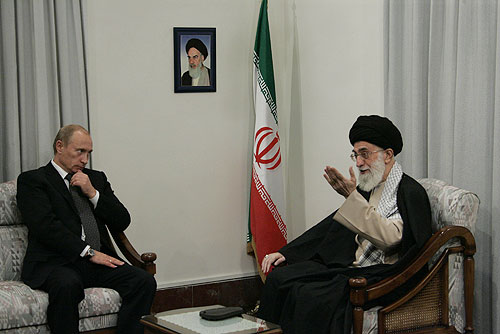The Kremlin Sees Global Dividends As the United States Fails To Supply Ukraine

According to a Washington Post report, Russia is increasingly confident about strengthening its global position by building economic and diplomatic relationships with China and nations in the Global South. This strategy aims to challenge the international financial system dominated by the United States and counter Western influence.
Buoyed by its ability to withstand a Western-backed Ukrainian counteroffensive and perceived political stalemates in Washington and Brussels, Russia is optimistic about its global standing. The Kremlin views the U.S. support for Israel’s invasion of Gaza as detrimental to Washington’s global reputation, furthering Russia’s ambitions.
Moscow officials have highlighted Russia’s deepening trade ties with China, military cooperation with Iran, diplomatic outreach in the Arab world, and the expansion of the BRICS group, which now includes Iran, Saudi Arabia, the UAE, Egypt, and Ethiopia. Russian President Vladimir Putin emphasized the BRICS group’s role in global affairs, focusing on “sovereign equality.”
Internal Russian Security Council documents, reviewed by The Washington Post, reveal discussions about undermining the dollar’s role as the world’s reserve currency. The ultimate aim appears to be dismantling the post-World War II financial system that favors U.S. dominance. Kremlin spokesperson Dmitry Peskov denied intentions to undermine U.S. dominance but acknowledged efforts to develop alternatives.
Economic resilience and military capabilities have bolstered Putin’s domestic standing ahead of Russia’s presidential election in March. Russian elites, initially skeptical about the war in Ukraine and the impact of Western sanctions, are now more unified in their outlook. Russian billionaires, like Oleg Deripaska, view Russia’s break with the West as an opportunity to reshape global economic patterns.
European security officials, however, view Russia as a junior partner to China and question Beijing’s interest in Russia’s grand plans. Nevertheless, Russia’s intent to disrupt Western influence is evident, particularly in the Middle East.
With elections in Europe this year, the U.S. State Department warns of Russian information operations aimed at weakening Western support for Ukraine. Deep divisions in Washington over continued funding for Ukraine have fueled Moscow’s belief in U.S. political paralysis.
Exiled Russian business executive Mikhail Khodorkovsky and British military experts express concerns about the West’s response to global disorder and Russian aggression. They argue that the West’s lack of political will and military support for Ukraine risks strategic failure and emboldens Russia’s assertive stance.

